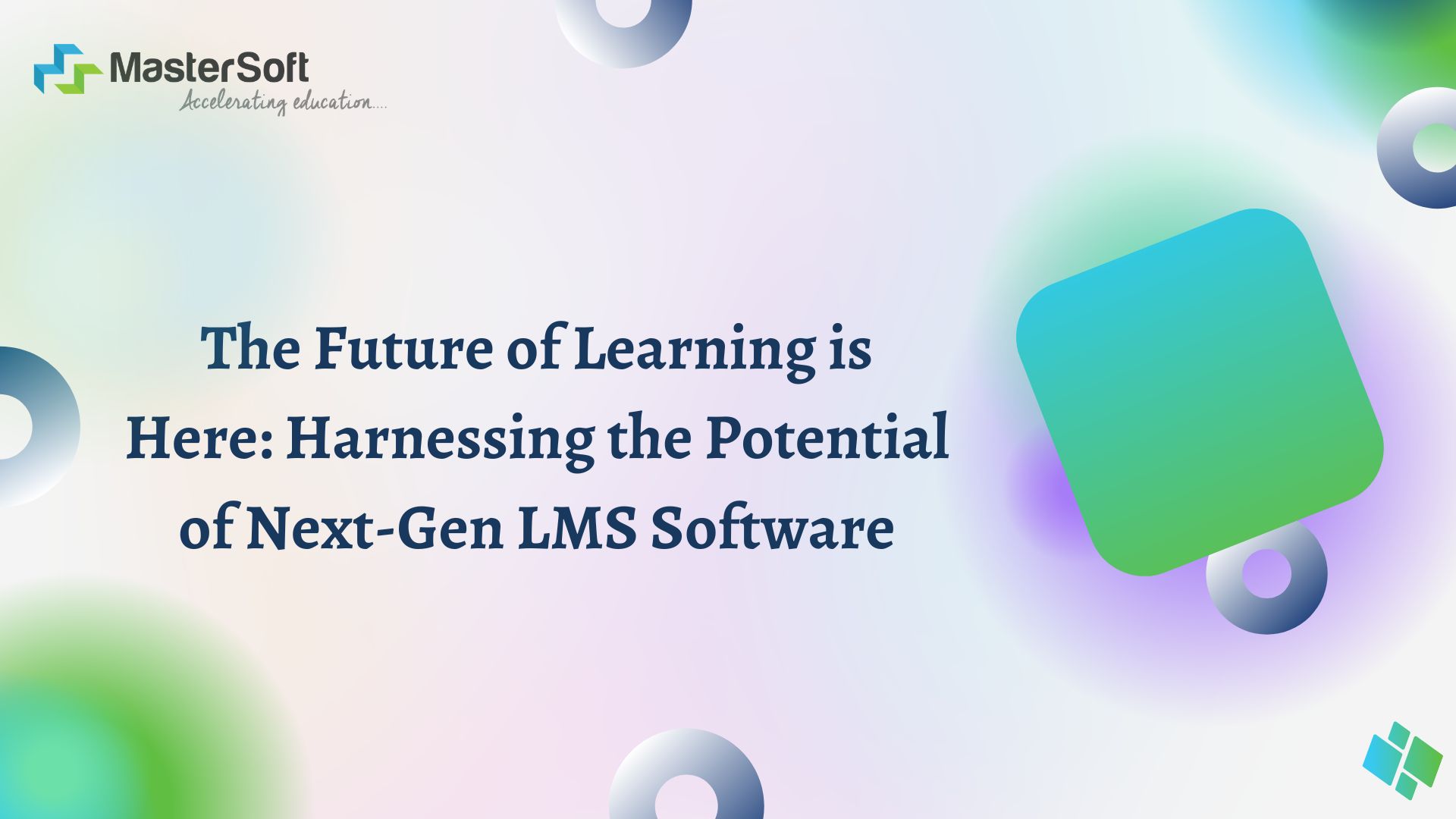In the ever-evolving landscape of education, the advent of technology has revolutionized the way we learn and teach. Among the most significant advancements is the rise of Learning Management Systems (LMS). These platforms have transformed traditional education models by offering a centralized hub for organizing, delivering, and tracking educational content. However, as we step into the future, it’s evident that the potential of LMS software goes far beyond mere course management. Next-generation LMS software promises to revolutionize learning experiences, making education more personalized, adaptive, and engaging than ever before.
Evolution of Learning Management Systems
Before delving into the future of LMS software, it’s crucial to understand its evolution. Initially, LMS platforms primarily served administrative functions such as course registration, grade tracking, and resource distribution. While these features streamlined administrative tasks, they lacked the flexibility and interactivity required for modern learning environments.
Over time, LMS software underwent significant enhancements, incorporating multimedia content, discussion forums, and assessment tools. These additions aimed to create more dynamic learning experiences, allowing learners to engage with course material in diverse ways. However, the true potential of LMS remained untapped until the emergence of next-generation solutions.
Next-Gen LMS: Unlocking Potential
Next-generation LMS software represents a paradigm shift in the world of education technology. These platforms leverage cutting-edge technologies such as artificial intelligence, machine learning, and data analytics to offer personalized learning experiences tailored to each learner’s needs and preferences.
Personalization and Adaptive Learning
One of the key features of next-gen LMS is personalization. By analyzing user data and behavior, these platforms can deliver customized learning paths, content recommendations, and assessments. Adaptive learning algorithms adjust the difficulty and pace of instruction based on individual performance, ensuring that learners receive optimal support and challenge.
Personalization fosters greater engagement and motivation among learners, as they feel empowered to take ownership of their learning journey. Moreover, it caters to diverse learning styles and abilities, accommodating a wide range of learners within the same educational environment.
Data-Driven Insights
Next-gen LMS platforms are powered by robust analytics engines that provide educators with actionable insights into learner progress and performance. By collecting and analyzing data on learning activities, assessment results, and interactions, these systems offer valuable feedback to both learners and instructors.
Educators can identify areas where students are struggling and intervene with targeted interventions or additional support. Furthermore, data-driven insights enable instructors to refine instructional strategies, identify effective teaching practices, and continuously improve course content.
Collaboration and Social Learning
In addition to personalized learning experiences, next-gen LMS Software prioritize collaboration and social learning. These platforms facilitate communication and knowledge sharing among learners through features such as discussion forums, group projects, and real-time messaging.
Collaborative learning fosters a sense of community and peer support, enhancing the overall learning experience. Learners can exchange ideas, collaborate on assignments, and provide feedback to one another, promoting deeper understanding and retention of course material.
Immersive Technologies
Next-gen LMS software integrates immersive technologies such as virtual reality (VR) and augmented reality (AR) to create immersive learning experiences. These technologies transport learners to virtual environments where they can engage with course material in a hands-on and interactive manner.
Whether exploring historical landmarks in VR or conducting virtual science experiments in AR, immersive technologies bring learning to life in ways previously unimaginable. By appealing to multiple senses and cognitive processes, these experiences enhance retention and understanding, making complex concepts more accessible and engaging.
The Future of Learning Unleashed
As we look to the future, the potential of next-gen LMS software to transform education is virtually limitless. By harnessing the power of technology, these platforms empower learners to pursue their educational goals with greater flexibility, efficiency, and effectiveness.
In the workplace, next-gen LMS facilitate continuous learning and skill development, enabling employees to stay competitive in an ever-changing job market. Employers can leverage these platforms to deliver targeted training programs, track employee progress, and identify emerging skill gaps.
In formal education settings, next-gen LMS support personalized learning initiatives, adaptive assessment practices, and competency-based education models. Educators can create individualized learning paths for each student, catering to their unique strengths, weaknesses, and interests.
Moreover, next-gen LMS have the potential to bridge the gap between formal and informal learning environments, blurring the lines between classroom instruction, online resources, and real-world experiences. By integrating learning experiences across multiple contexts, these platforms offer a holistic approach to education that prepares learners for success in an increasingly complex and interconnected world.
Conclusion
The future of learning is here, and it’s being shaped by next-generation LMS software that promises to revolutionize education as we know it. By embracing personalization, data-driven insights, collaboration, and immersive technologies, these platforms are redefining the learning experience, making it more engaging, adaptive, and effective than ever before.
As we continue to innovate and evolve, the potential of next-gen LMS to empower learners, educators, and organizations alike is truly transformative. By harnessing the power of technology, we can unlock new possibilities for lifelong learning, skill development, and personal growth, ensuring that education remains a catalyst for individual success and societal advancement in the years to come.
